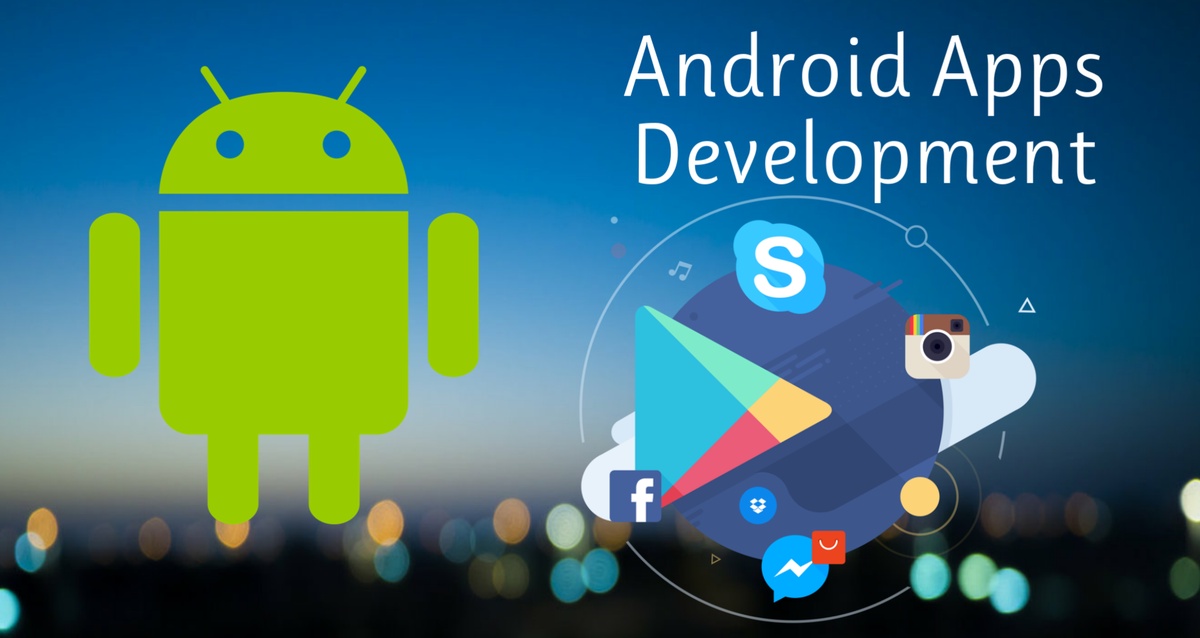Getting to an extensive selection of Android applications becomes possible via the thriving Android Market App ecosystem. With a user base exceeding three billion, it offers a diverse selection of productivity, communication, gaming, and entertainment apps.
According to StatCounter, the Android operating system holds over 70 percent of smartphone usage, demonstrating its continued dominance in the worldwide smartphone market. According to another report, Google Play, the main Android app store, has grown dramatically over the last ten years and is expected to generate an incredible $38.6 billion in sales by 2020. Users downloaded these apps on the platform 108 billion times in 2020, thanks to its vast app selection. This presents a lucrative opportunity for Android App Development Company to capitalize on the thriving ecosystem and create innovative solutions for millions of users worldwide.
In this article, we'll start a thorough investigation into the broad effects of Android apps and the technology utilized in their production, revealing how they are empowering people, changing industries, and promoting connectedness in previously unimaginable ways.
How are Android Apps Revolutionizing Business Today?
In today’s digitally-driven landscape, Android applications have become an influential gateway to diverse audiences and immense prosperity. They are superior to desktop applications and conventional websites, enhancing competitive advantage and producing strong returns on investment (ROI).
Android has become the dominant platform in the majority of regions globally, and its effect can be seen in many different countries. Its competitor, Apple, is more formidable in the US and Japan, though. Conversely, nations like Brazil, India, Indonesia, Iran, and Turkey have embraced Android with open arms, with over 85% of these territories' smartphone market share being Android. This extensive Android adoption serves as more evidence of the platform's enormous significance in influencing the world of mobile apps and digital interactions.
Top Five Programming Languages for Android App Development
Among the technologies that are used for Android app development, some programming languages are particularly notable for their effectiveness and adaptability. These programming languages are the first choices for developers who want to develop innovative Android apps because of their strong capabilities, effectiveness, and flexibility. Let’s delve into the top contenders that drive innovation in this dynamic field.
- Java: The most popular and established language for creating Android apps, renowned for its comprehensive libraries and consistency.
- Kotlin: A language that is officially supported for Android development and has a clean syntax, null safety, and smooth Java interoperability.
- C++: Because of its efficiency and capacity to access low-level system functions, it's perfect for tasks requiring high performance or for developing games on Android.
- Swift: Swift is typically used for iOS development, but it can also be used with multi-platform frameworks or platforms like Kotlin/Native to construct Android apps.
- JavaScript (with frameworks like React Native or NativeScript): Allows creation of apps for Android utilizing web technologies, with certain trade-offs in performance, for cross-platform development.
What are the Best Android App Development Frameworks and Technologies?
The technology for Android app development is constantly evolving, with new frameworks emerging to simplify the process and enhance developer productivity. These latest frameworks aim to provide better performance, ease of use, and cross-platform capabilities, empowering developers to create innovative applications. In our discussion below, we will explore the details of the most recent Android app development frameworks and their unique features:
- Flutter
- React Native
- Ionic
- Xamarin
- Apache Cordova
Android App Development Process
Developing an Android app involves several steps, from ideation to deployment. Here's a general overview of the Android app development process:
- 1. Ideation and Conceptualization:
- Determine your app's goal and targeted user base.
- To comprehend user wants and rival solutions, conduct market research.
- Describe the essential features and capabilities of your application.
- Make wireframes or prototypes to see how the user interacts with the program.
- 2. Design:
- Design the app's user interface (UI) and user experience (UX).
- Select the right font, colors, and graphic components.
- For consistency and familiarity, make sure the design complies with Android's Material Design principles.
- To make mockups and prototypes, use design software like as Sketch, Adobe XD, or Figma.
- 3. Development:
- Choose the development-specific technology stack, such as the frameworks, libraries, and programming languages.
- Setup Android Studio, the official IDE for developing Android apps, as part of setting up your development environment.
- To put the features and functionalities that were previously outlined into practice, write code.
- Regular testing will help you find and fix errors in your code.
- 4. Testing:
- Conduct a range of testing procedures, such as compatibility, usability, performance, and functional testing.
- To test your app on various screen sizes, resolutions, and Android versions, use emulators and actual devices.
- Get beta testers' comments and make changes to your app in response to their recommendations.
- 5. Deployment:
- Create an account as a developer on the Google Play Console.
- Create signed APKs or app bundles to get your app ready for release.
- Create enticing screenshots, write captivating app descriptions, and develop visually striking marketing materials.
- Decide on price and distribution strategies.
- Upload your app to the Google Play Store and follow the submission process.
- Monitor the app's performance and user feedback post-launch.
- 6. Maintenance and Updates:
- Update your software often to enhance functionality, address bugs, and add new features.
- To guarantee compatibility, keep up with the most recent Android versions and platform modifications.
- To keep users satisfied, keep an eye on their feedback and take quick action as necessary.
- For well-informed decision-making, think about implementing analytics tools to monitor app usage and user behavior.
Conclusion
In conclusion, mastering a range of technologies, including Java, Kotlin, XML, and Android Studio, is essential to becoming an expert Android app developer. Developers can build dependable and intuitive Android applications by skillfully utilizing these features. For those seeking professional assistance, consider partnering with RichestSoft, a leading app development company known for their expertise and innovative solutions. With their experienced team, you can bring your Android app ideas to life and reach your target audience effectively.


No comments yet